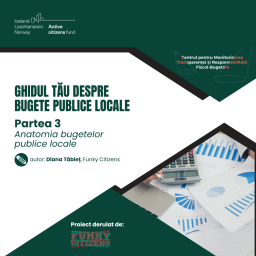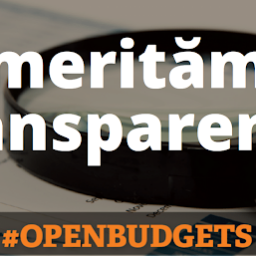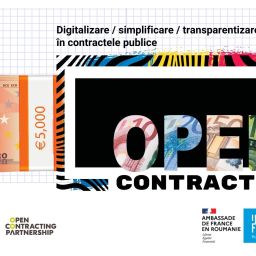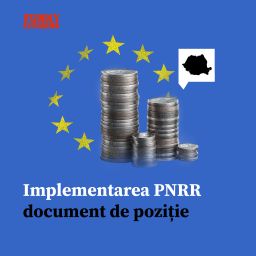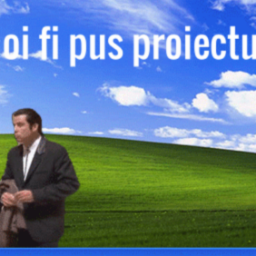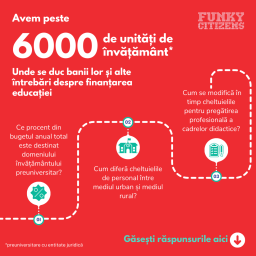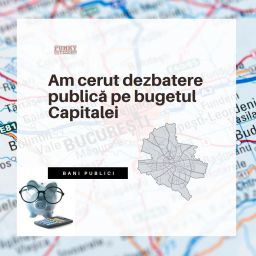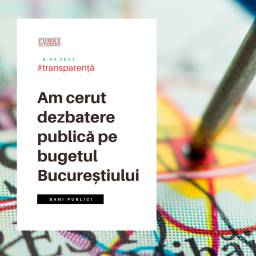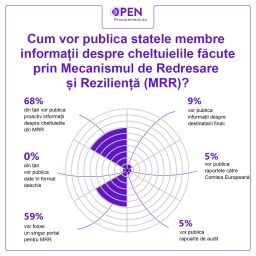Dear Minister,
Considering the publication of The Project for Emergency Ordnance of the Government on establishing the institutional and financial framework for the management of European funds under the Recovery and Resilience Mechanism on the website of The Ministry for Investments and European Projects,
we request you to organize a public debate on its content, in accordance with the provisions of Law 52/2003 on decision-making transparency.
In addition to the obligation under national law to publish and debate the draft normative act, we would like to remind you that the National Recovery and Resilience Plan is subject to a European framework that puts the involvement of civil society and the social partners in a very important position for good elaboration. and implementation of these funds.
Thus, the very Regulation that the draft GEO operationalizes (Regulation (EU) 2021/241 of the European Parliament and of the Council of 12 February 2021 establishing the "Recovery and Resilience Mechanism") specifies that there must be a only at the time of preparation of the plan, but also, if approved, in implementation and that this consultation will not be able to be only a formal one, but one that can be later transposed in the reports by which new tranches will be requested funds:
Article 18 4) (q) for the preparation and, if needed, the implementation of the plan for recovery and resilience, a summary of the consultation process, carried out in accordance with the national legal framework, local and regional authorities, the social partners, civil society organizations, youth organizations and other relevant stakeholders, and the way in which stakeholder contributions are reflected in the recovery and resilience plan.
We welcome the operationalization of elements that will ensure transparency in the use of funds allocated through PNRR, but we inform you that they do not fully cover not only the European requirements in this regard, but also the commitments made by Romania.
For example, the existence of a scoreboard as a "real-time information platform on the stage of implementation of each measure, investment, reform component, reform and which will present information exported from the IT system" is specified. However, it is only specified that MIPE will have the role of its administration. But nothing about the export of those data in open format and nothing about the deadlines (although the computer system is assumed by PNRR to be ready by the end of December 2021).
Moreover, in the National Recovery and Resilience Plan, as approved by the European Commission and the EU Council on October 28, 2021, in Part 3, page 57, there is the following commitment that is not transposed in the draft GEO or by a government decision, although this was to take place 30 days after the adoption of the PNRR (according to GEO 155/2020):
In order to ensure the involvement of the social partners and civil society in monitoring the progress of the PNRR and the reforms, a Monitoring Committee will also be set up., having as members non-governmental organizations selected by call by candidates by MIPE, based on their degree of representation, with which will be similar unions and employers, as well as associative structures of local public administration, respectively the National Union of County Councils from Romania, the Association of Romanian Municipalities, the Association of Romanian Cities, the Association of Romanian Communes, as well as other associative forms of general interest, constituted according to the law. The meetings of the Monitoring Committee will take place quarterly and will include informing members about the state of implementation of the PNRR, the contribution of the PNRR to meeting the objectives of national strategies and programs, as well as EU strategies, consulting members to identify solutions. bottlenecks in the implementation of reforms and the PNRR, as well as the debate of other issues arising from the effective implementation process. The organization and operation procedure will be similar to FESI.
Thus, we consider that the draft GEO does not yet provide the necessary standard through the European framework for consulting the civil society and the social partners in the implementation and, especially, the monitoring of PNRR. At the moment, the draft GEO mentions only marginally the Monitoring Committee, and the call for applications for its establishment has not been launched. Given that MIPE has the responsibility to "ensure the public consultation process with all social partners, to create a transparent decision-making framework for the development / approval / implementation / amendment of PNRR", we therefore ask you to organize a meeting as soon as possible. debates to correct these shortcomings. It would be a shame if, through the very first framework document for the implementation of this Fundamental Program for Romania, we signal that the principle of social and civic dialogue can be discounted.
With consideration,
- Funky Citizens
- Consiliul Național al Elevilor
- Consiliul Tineretului din România
- Fundația pentru Dezvoltarea Societății Civile


